Vitamin D3 Foods for Vegetarians | Plant-Based Sources
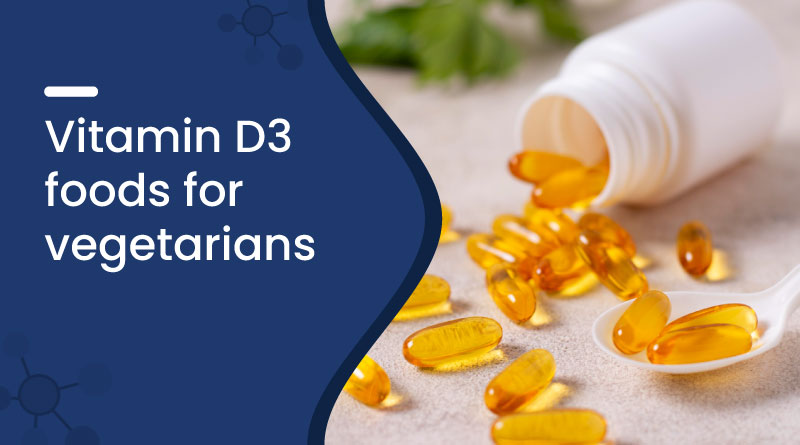

Introduction
Vitamin D3, also known as cholecalciferol, is essential for bone health, immunity, and overall well-being. While sunlight is the primary natural source, vegetarians may find it challenging to get enough vitamin D3 from the diet alone. Fortunately, certain fortified plant-based foods and UV-exposed mushrooms can help maintain healthy levels. This blog explores the benefits of vitamin D3, plant-based sources, and ways to naturally boost your intake.
What is Vitamin D3?
Vitamin D3 (cholecalciferol) is a fat-soluble vitamin that supports calcium absorption, strong bones, immune function, and brain health. It is generally more effective than vitamin D2 in raising and maintaining blood vitamin D levels.
Most natural sources of vitamin D3 are animal-derived, but vegetarians can obtain it from fortified plant-based products and UV-exposed mushrooms. Some supplements are also made from vegetarian-friendly sources.
Also read - Vitamin D2 vs D3
What Are The Benefits of Vitamin D3?
- Stronger Bones & Teeth: Enhances calcium absorption, reducing fracture risk.
- Boosted Immunity: Supports the body’s defense against infections.
- Improved Mood & Mental Health: Helps regulate brain function and may lower depression risk.
- Muscle Strength: Supports improved muscle performance and reduces fatigue.
- Heart Health: Contributes to cardiovascular well-being.
Signs and Risks of Vitamin D3 Deficiency
Vitamin D3 deficiency can cause symptoms like frequent infections, muscle weakness, bone pain, fatigue, and mood changes such as depression. When untreated, the risk of the following increases:
- Osteoporosis and fractures
- Weakened immune system
- Chronic fatigue
- Increased susceptibility to heart disease and type 2 diabetes
- Rickets in children
Also read - Vitamin D for Kids: Prevent Rickets & Build Strong Bones
What Can Vegetarians Eat for Vitamin D3?
Although most natural sources of vitamin D3 are animal-based, vegetarians can obtain it from:
| Source | Description |
|---|---|
| Fortified Plant-Based Milks | Almond, soy, oat, and coconut milk enriched with vegetarian vitamin D3. |
| Fortified Breakfast Cereals | Choose brands that specify vegetarian D3 on the label. |
| Fortified Orange Juice | Available in some markets with added vegetarian vitamin D3. |
| Mushrooms | Varieties like maitake, portobello, and shiitake produce vitamin D3 when exposed to sunlight or UV light. |
| Fortified Plant-Based Yogurt | Soy, almond, or coconut yogurt with added vegetarian vitamin D3. |
How to Naturally Boost Vitamin D3 Levels?
- Sunlight Exposure: Spend 15–20 minutes in direct morning sunlight at least 3 times a week to stimulate vitamin D3 production.
- Balanced Diet: Include vitamin D3-rich vegetarian foods and fortified products regularly.
- Fortified Foods: Choose fortified plant-based milks, cereals, and juices that contain vegetarian D3, as part of your daily meals.
Tips to Maintain Healthy Vitamin D3 Levels
- Get regular sun exposure alongside consuming a vitamin D3-rich vegetarian diet.
- Include fortified foods in your meals daily.
- Stay active outdoors as much as possible.
- Plan routine medical tests to monitor vitamin D status.
Guidelines for Vitamin D3 Supplementation
If sunlight and diet are insufficient, supplements can help maintain healthy vitamin D3 levels. However:
- Always consult a doctor before starting supplements.
- Follow the recommended dosage to avoid excess intake.
- Consider regular blood tests to monitor vitamin D status.
Also read - Vitamin D3 Supplement in India
Possible Side Effects of Excess Vitamin D3
- Nausea and vomiting
- Kidney damage
- Hypercalcemia (excess calcium buildup)
- Weakness and confusion
Conclusion
Vitamin D3 is vital for bone health, immunity, and overall well-being, especially for vegetarians who may find it challenging to get enough from diet alone. Including fortified foods, UV-exposed mushrooms, and safe sun exposure can help maintain healthy levels. When needed, supplements under medical guidance can support your vitamin D3 needs. Regular monitoring ensures you get the right balance for optimal health.
Frequently Asked Questions (FAQs)
Q. Can vegetarians get enough vitamin D3 from their diet?
A. Yes, by consuming fortified vegetarian foods and UV-exposed mushrooms, plus supplements if necessary.
Q. What are good vegetarian sources of vitamin D3?
A. Fortified plant milks, cereals, orange juice, UV-exposed mushrooms, and fortified plant-based yogurt.
Q. Can I take vitamin D3 supplements during pregnancy?
A. Yes, you can take vitamin D3 supplements during pregnancy, but always consult your doctor to ensure the right dosage and safety for you and your baby.
Q. How much sunlight do I need for vitamin D3 production?
A. About 15–20 minutes of direct morning sunlight, at least 3 times a week, helps your body produce vitamin D3.
Q. Can children who are vegetarians get enough vitamin D3?
A. With a balanced diet, fortified foods, safe sun exposure, and supplements if necessary, children can maintain healthy levels.
Q. When should I consider taking vitamin D3 supplements?
A. If sunlight exposure and diet are insufficient, or if a deficiency is diagnosed, supplements may be recommended by a doctor.
Q. Can I get enough vitamin D3 from sunlight during winter?
A. Sunlight exposure is often limited in winter, making diet and supplements more important during colder months.
Q. Do fortified foods provide enough vitamin D3 for vegetarians?
A. Fortified foods can be a reliable source when combined with sunlight and a balanced diet.
Cholecalciferol 60000 I.U. per sachet
1gm in 1 sachet
Elemental Calcium ( As Calcium Citrate Malate) (250mg) + Vitamin D3 100 IU + Folic Acid (50mcg)
30 Tablets per bottle
Cholecalciferol (Vitamin D3) 60000 IU
4 Piece Oral Solution in Box
Vitamin D3 (Cholecalciferol) 400 I.U.
15 ml Oral Drops in a Bottle
Recent Blogs
Disclaimer : Zeelab Pharmacy provides health information for knowledge only. Do not self-medicate. Always consult a qualified doctor before starting, stopping, or changing any medicine or treatment.

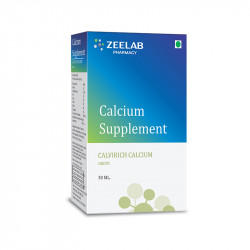
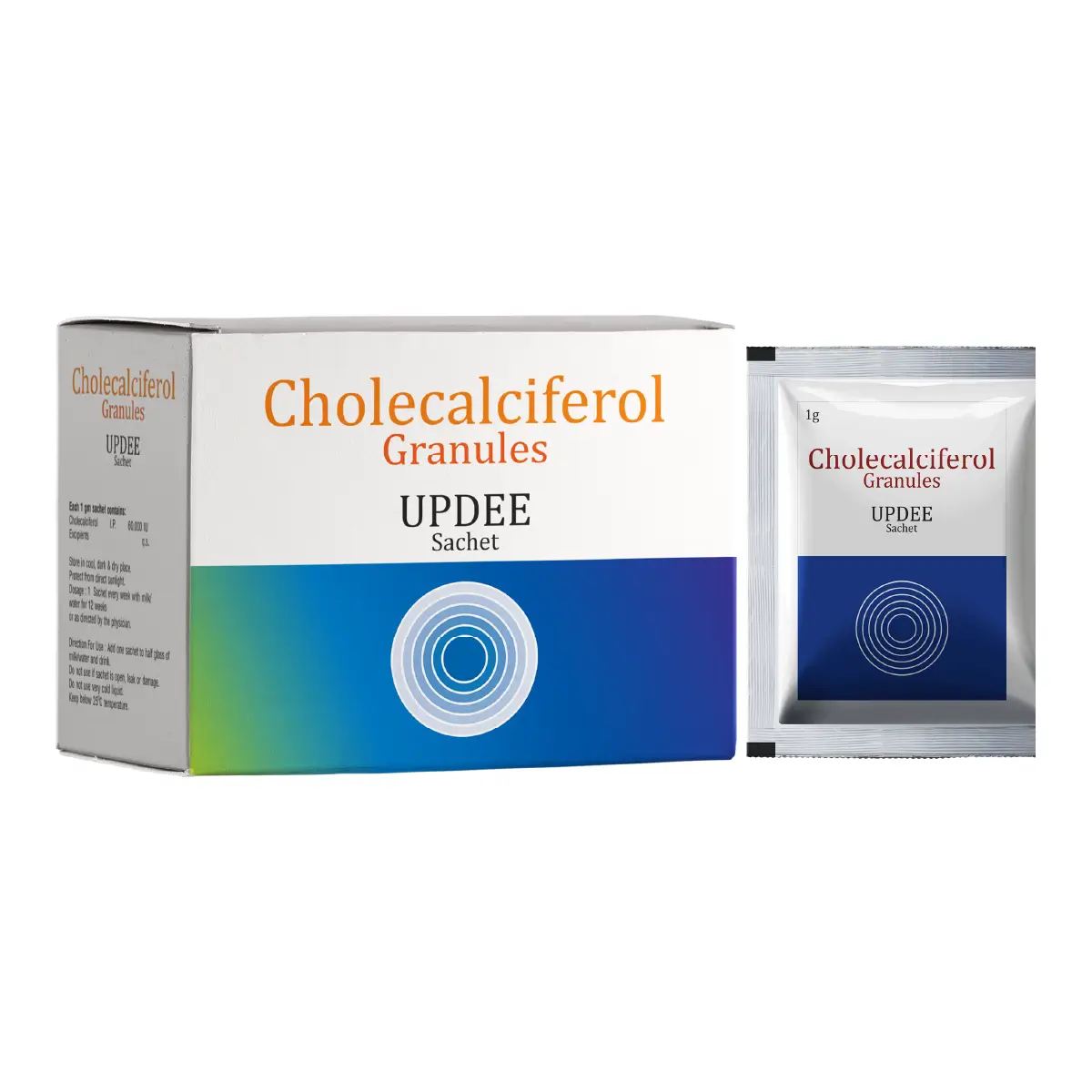
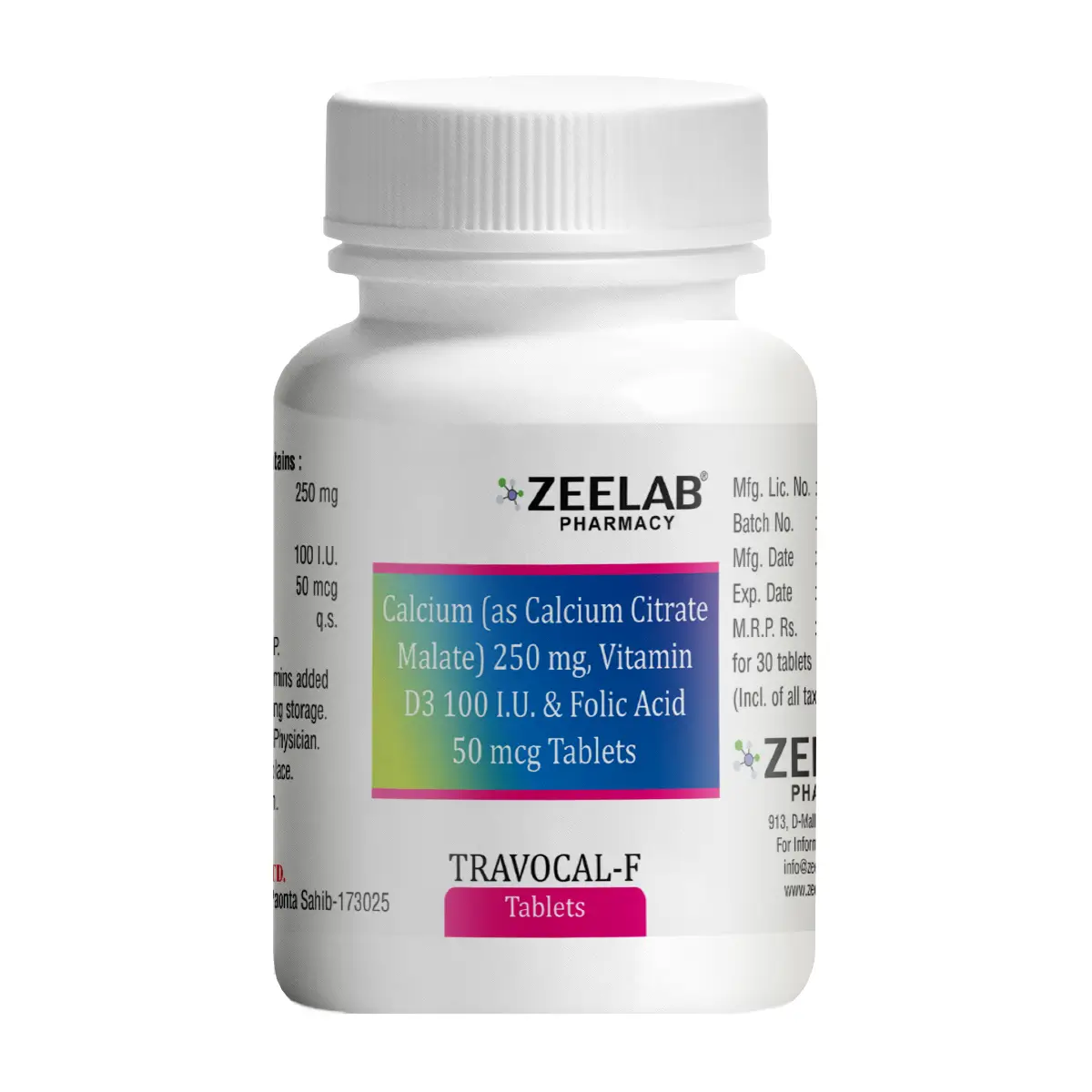
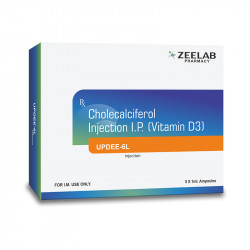
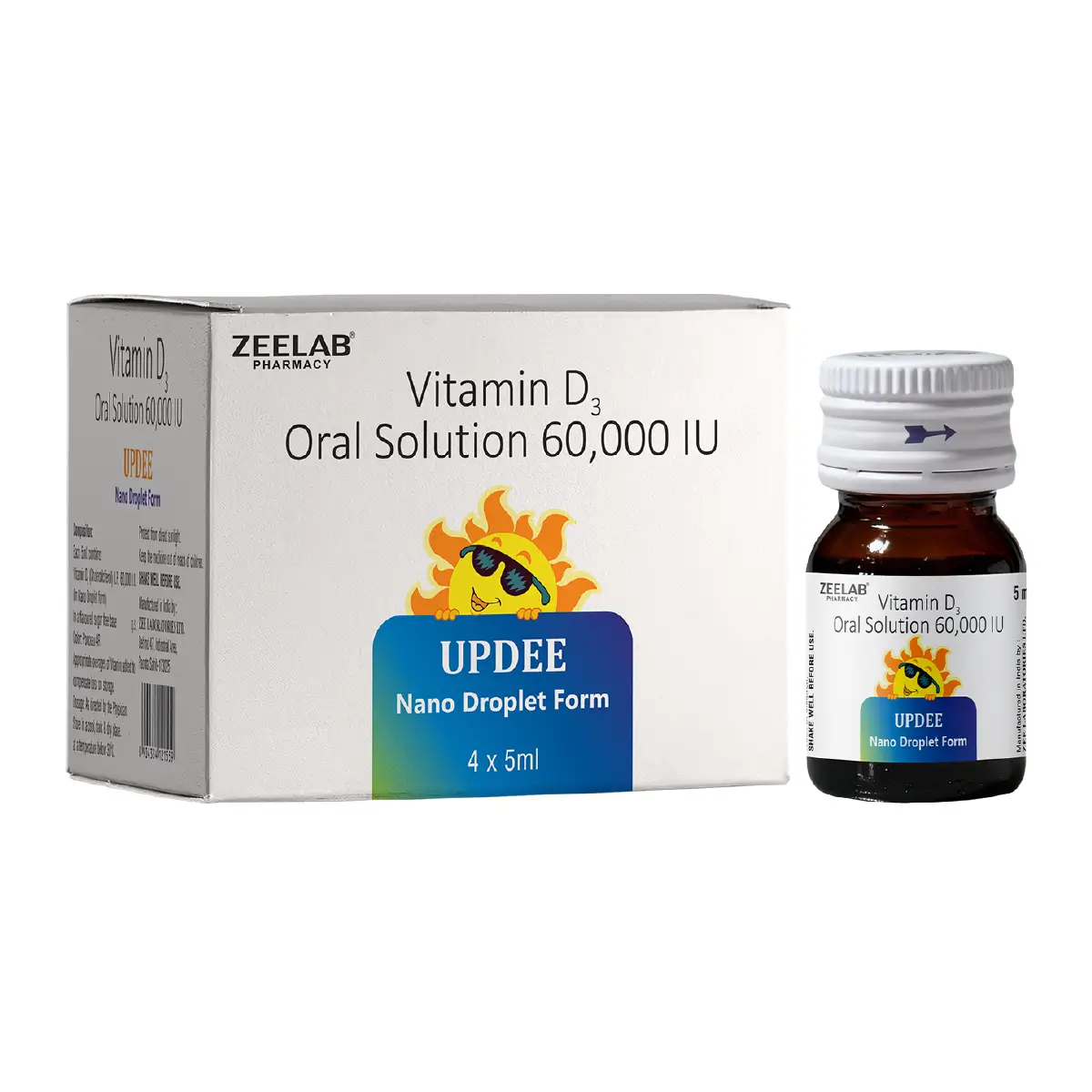
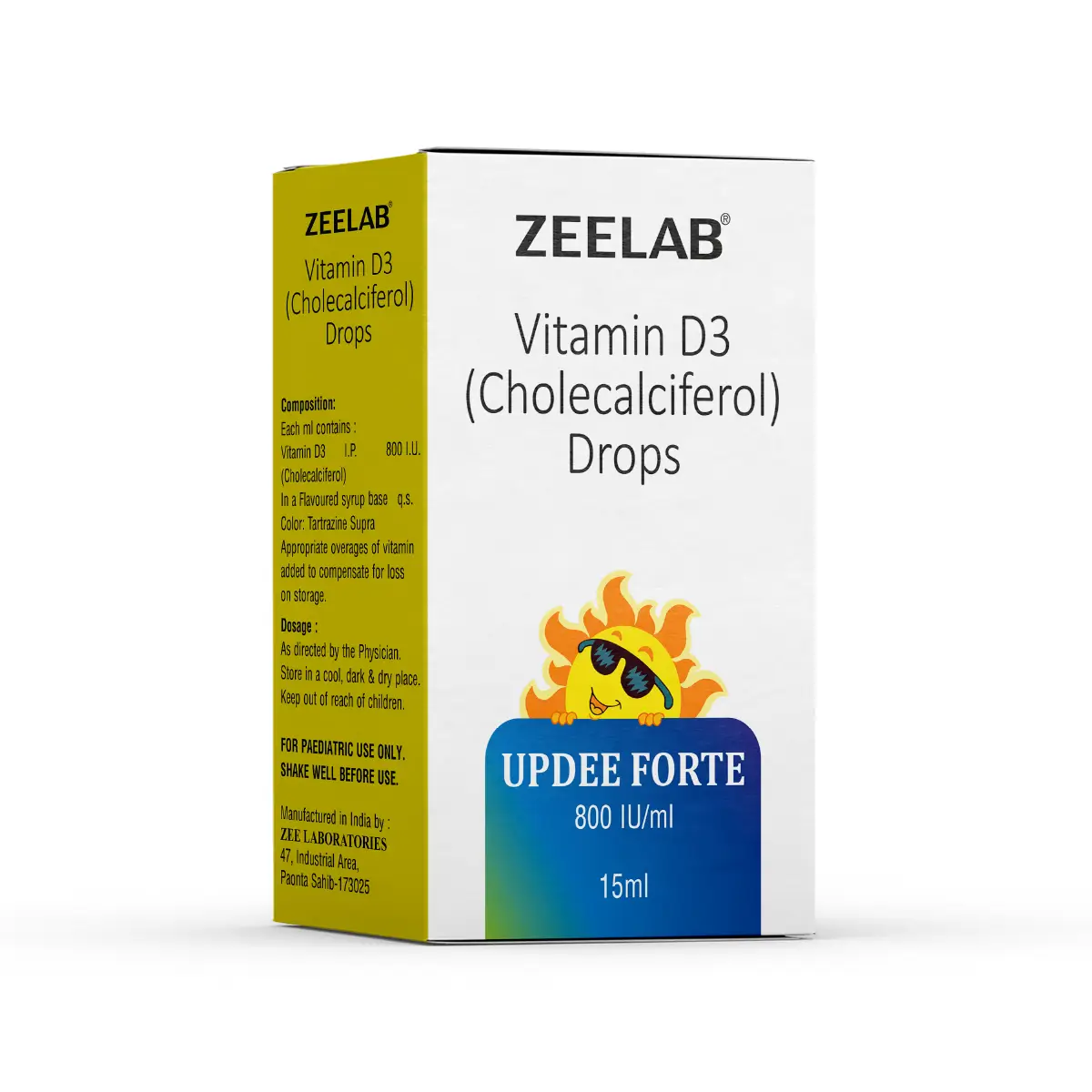
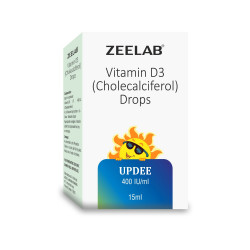

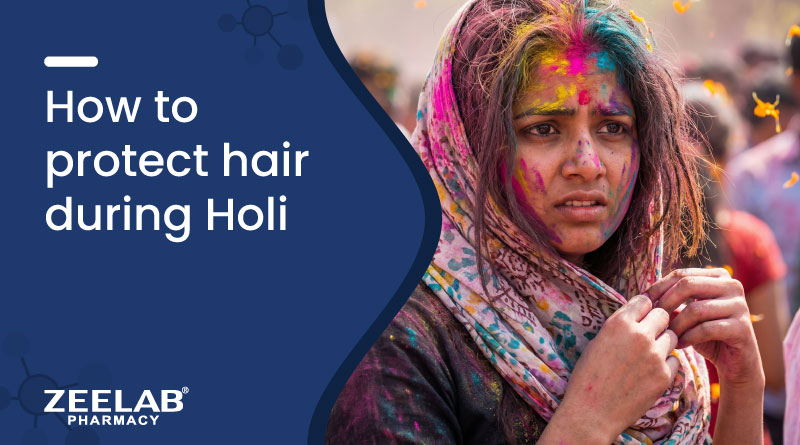













 Added!
Added!